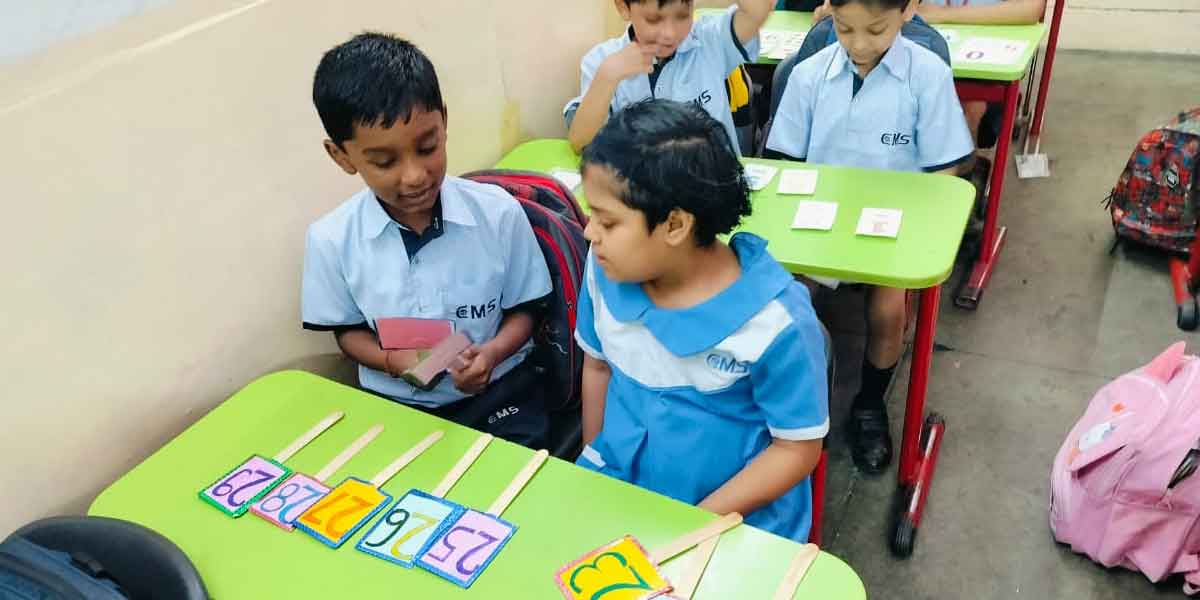Grateful Learners, Grounded Teachers

We are told that gratitude makes us happy. That if we just count our blessings, our troubles will shrink. So, we list them dutifully: family, health, a roof, a job, and still, something feels incomplete. The truth is, gratitude doesn't always make you happier. It makes you different.
Because gratitude is not about joy on demand. It's about the slow, uncomfortable rewiring of how you see yourself and your life.
For years, I chased “more.” More success, more recognition, more impact. Each milestone brought a fleeting rush, followed quickly by a whisper: “Yes, but what about the next?” I wasn't running toward achievement. I was running from inadequacy.
It's the same voice that tells students, “Good marks, but not good enough.” The one that tells teachers, “You have done well, but others are doing better.” It pushes us to chase, not to grow. It pressures performance, not purpose.
We live in a culture that thrives on scarcity. We scroll through other people's wins and quietly measure our worth against theirs. The bar moves higher each time we reach it. In schools, in offices, even at home, “more” has become our default setting.
The trouble with “more” is that it never ends. Then gratitude entered, not as a ritual, but as a rupture.
It didn't erase ambition or kill drive. It simply separated my worth from my wins.
The writer Melody Beattie once said, “Gratitude unlocks the fullness of life. It turns what we have into enough.” That line landed differently when I truly understood it. Gratitude didn't make me complacent; it made me grounded.
For the first time, I started chasing goals from abundance, not from fear. I could still want to grow, but not because I felt lacking. Growth became a choice, not a compulsion.
In that moment, gratitude wasn't a warm feeling, it was a mirror. It showed me that I had been measuring my life in scarcity, when I was already living in abundance.
Ambition without gratitude burns through joy. It leaves only restlessness behind. Gratitude without ambition, however, is stagnation. It is a life of settling, not striving.
The trick is balance. To work, not because we must prove ourselves, but because we are grateful to have the chance to create.
As Oprah Winfrey said, “Be thankful for what you have; you will end up having more. If you concentrate on what you don't have, you will never, ever have enough.”
This mindset shift changes how we show up in classrooms, offices, and families. A teacher teaching out of gratitude, for the chance to shape young minds, radiates energy that no paycheck can replicate. A student studying out of gratitude for the opportunity to learn approaches even failure differently. Gratitude doesn't guarantee success, but it changes the way success feels.
Imagine if schools taught gratitude not as a moral value, but as a mindset. Instead of only rewarding achievement, what if we paused to acknowledge effort, empathy, and growth?
Children today are growing up in a comparison culture, exam ranks, social media, online validation. They are learning early that self-worth is external. Gratitude disrupts that cycle. It reminds them that progress begins with perspective.
A child who learns to say, “I'm grateful for what I've learned,” even after a poor grade, is already stronger than one who believes their marks define them. Gratitude teaches resilience, the quiet kind that survives disappointment and keeps moving forward.
Psychologist Brené Brown once wrote, “It's not joy that makes us grateful; it's gratitude that makes us joyful.” That may be the most overlooked truth in education, leadership, and life.
When we begin from gratitude, our ambition transforms. It becomes collaborative, not competitive. We stop viewing others' success as a threat and start seeing it as proof of possibility.
In schools that practice peer-led learning by default, such as through the ALfA approach (Accelerating Learning for All), children learn together rather than against each other. They celebrate shared progress. Helping a peer learn doesn't take away from you; it lifts both of you. That is gratitude in action.
We often define success as “reaching the top.” But what if real success is being able to say, “I already have what I once prayed for”?
Gratitude doesn't demand less ambition. It asks only that we stop masking our fears with it, and stop waiting for peace at the finish line.
Because the truth is, if you cannot find contentment now, you won't find it then.
A 60-Second Challenge So, pause right now. Sixty seconds. Name three things, not grand ones, just small, real things, that you are grateful for today.
Maybe it's the morning sunlight spilling through your window. Maybe it's the cup of tea that comforted you after a long day. Maybe it's the fact that you can read these words, which means you are alive, aware, and still learning.
Now imagine if students did this each morning before class began, not to fake positivity, but to remind themselves that learning itself is a privilege.
Gratitude won't make your problems vanish. But it will make your perspective unrecognizable.
I need to be more” shifts into “I am full, complete, abundant as I am. Gratitude opens the eyes to what is already overflowing — the quiet wealth of skills, love, time, and presence we often overlook. This shift is subtle but seismic.
Because when you move from scarcity to abundance, the race slows, the breath steadies, and the noise fades. You begin to see that joy and progress were never opposites, they were always meant to walk together.
And that is when gratitude stops being a habit, and becomes your way of being.